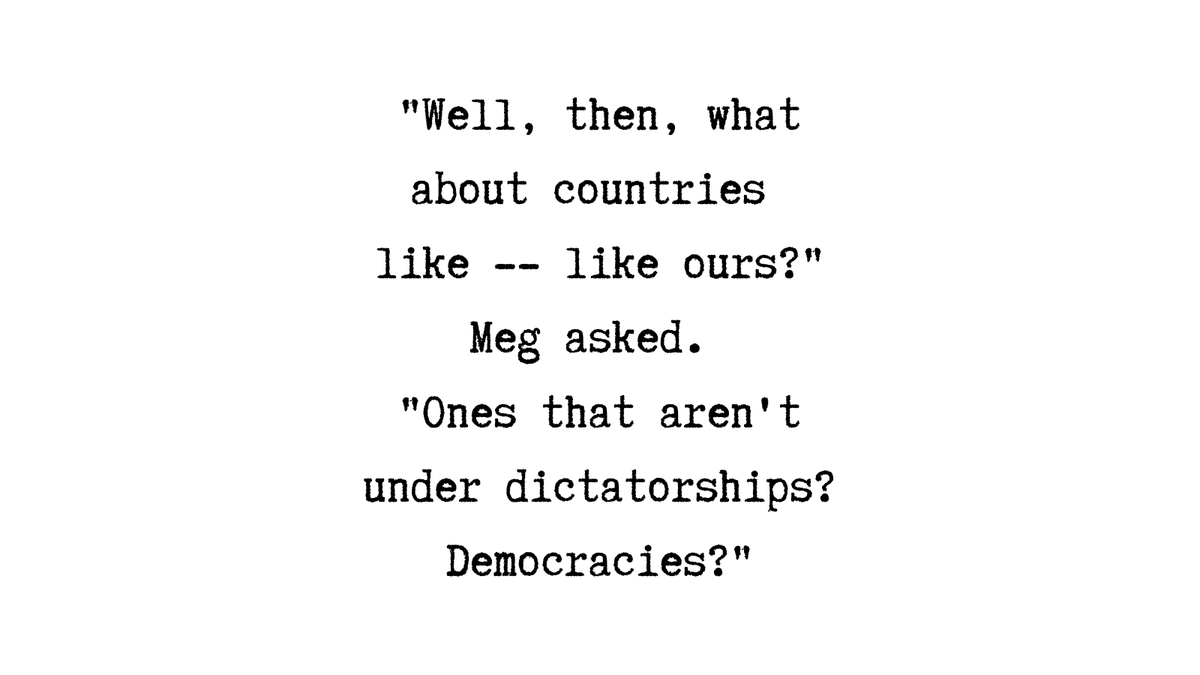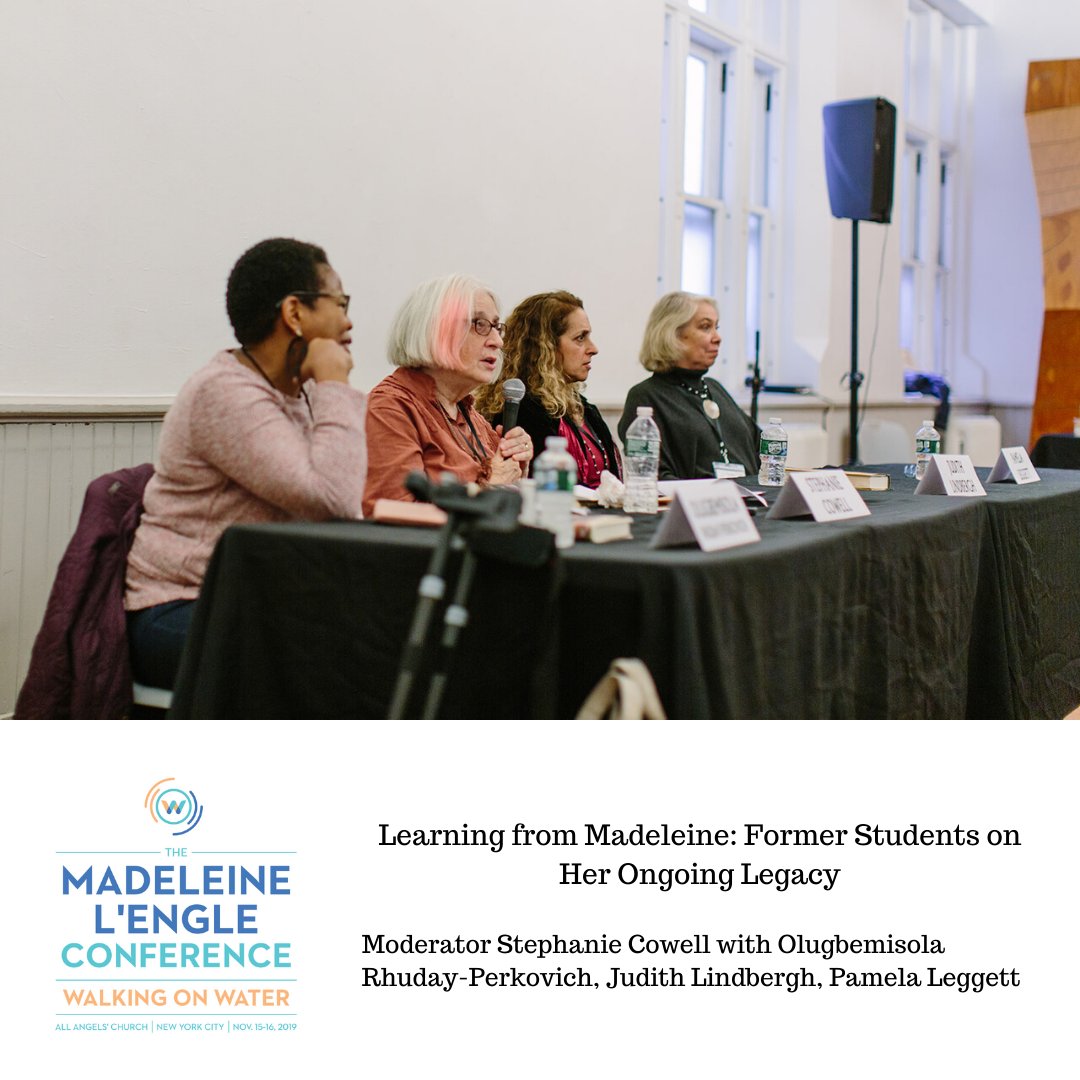Thread on totalitarianism, Adapted from an unpublished manuscript excerpt of #awrinkleintime:
Afraid to ask the question that was really on her mind, Meg said, “But Father, how it capture Camazotz?”
Afraid to ask the question that was really on her mind, Meg said, “But Father, how it capture Camazotz?”
He said, “Well, Megatron, if you’re thinking that perhaps the brain simply marched in and took over all the minds on Camazotz, it isn’t nearly as simple as that.
“It was the logical outcome of two things, Of complete totalitarianism in certain countries —“
“What’s totalitarianism?”
“It’s like Russia under Kruschev. Or Germany and Hitler. Countries under dictatorships. Franco. Mussolini. Castro. Mao.”
“What’s totalitarianism?”
“It’s like Russia under Kruschev. Or Germany and Hitler. Countries under dictatorships. Franco. Mussolini. Castro. Mao.”
“Well, then, what about countries like — like ours?” Meg asked. “Ones that aren’t under dictatorships? Democracies?"
Mr. Murry sighed. “It’s an equally logical outcome of too much prosperity. Or you could put it that it’s the result of too strong a desire for security.”
Mr. Murry sighed. “It’s an equally logical outcome of too much prosperity. Or you could put it that it’s the result of too strong a desire for security.”
“But Father, what’s wrong with security? Everybody likes to be all cosy and safe.”
“Yes,” Mr. Murry said, grimly. “Security is a most seductive thing. I have come to the conclusion that it’s the greatest evil there is.
“Yes,” Mr. Murry said, grimly. “Security is a most seductive thing. I have come to the conclusion that it’s the greatest evil there is.
"Our country has been the greatest when it has been most insecure. This longing for security is a dangerous thing, Meg, as insidious as strontium 90 from our nuclear explosions. You can’t feel it or touch it. But it’s there.
"So is the panicky searching for conformity, for security. Maybe this lust for security is like a disease germ that has let loose on our land. I don’t know, Meg. All I realize now is that my fight is much bigger than this little one on Camazotz.”
• • •
Missing some Tweet in this thread? You can try to
force a refresh








